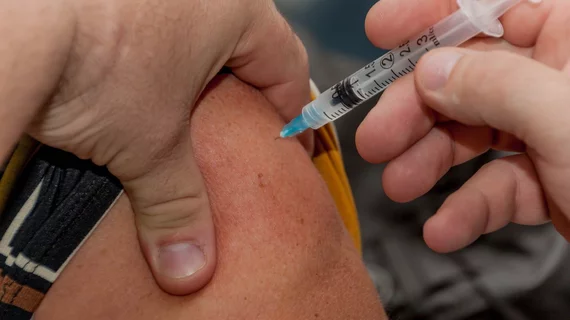Cardiologists can make a difference by promoting flu shots, debunking vaccine misinformation
Cardiologists should emphasize the importance of flu shots to their patients, according to an international team of specialists out the Netherlands and New York.
The commentary, published in Netherlands Heart Journal, examined the 2021-2021 flu season through the lens of the ongoing COVID-19 pandemic. Promoting COVID-19 vaccines has been made a priority for cardiologists by the American Heart Association and others, the authors wrote, and influenza vaccines should be treated in a similar manner.
It’s especially important for cardiologists to take such an active role, the group added, because the seasonal flu—much like COVID-19—has been directly associated with cardiovascular complications.
“Given the importance of influenza vaccination to prevent cardiovascular events, the cardiology community should be urged to actively promote vaccination,” wrote first author G.L. Habib, MSc, a cardiologist at Amsterdam University Medical Center in the Netherlands, and colleagues. “It is essential to remember that the beneficial effect of influenza vaccination is of the same magnitude as that of prescription of statins, antihypertensives, or cessation of smoking. Vaccination apathy in the cardiology community is therefore unacceptable.”
Habib et al. also highlighted some ways that cardiologists can reach patients who may be skeptical about vaccines.
“When promoting vaccination against influenza, barriers such as concerns about safety of the vaccine and low perceived risk of the disease should be discussed with patients to overcome vaccine hesitancy,” they wrote. “In addition, recent research has found that the best way to debunk misinformation is to first state the truth, then mention the false claim, followed by repeating the truth.”
Read the full commentary here.

